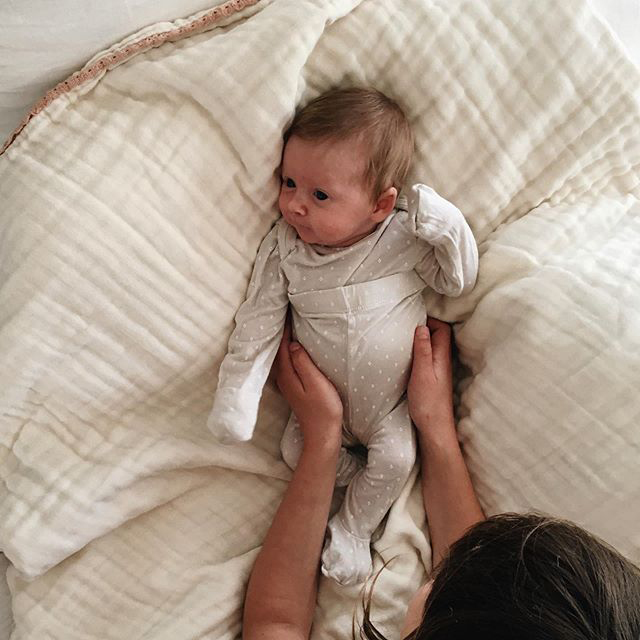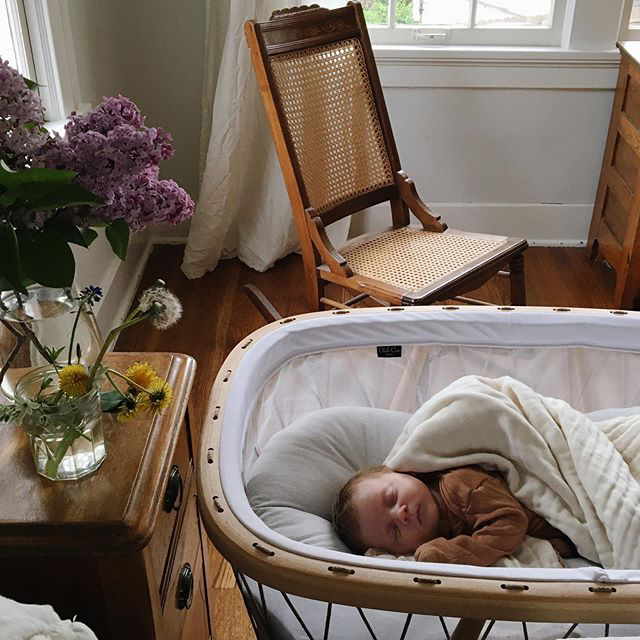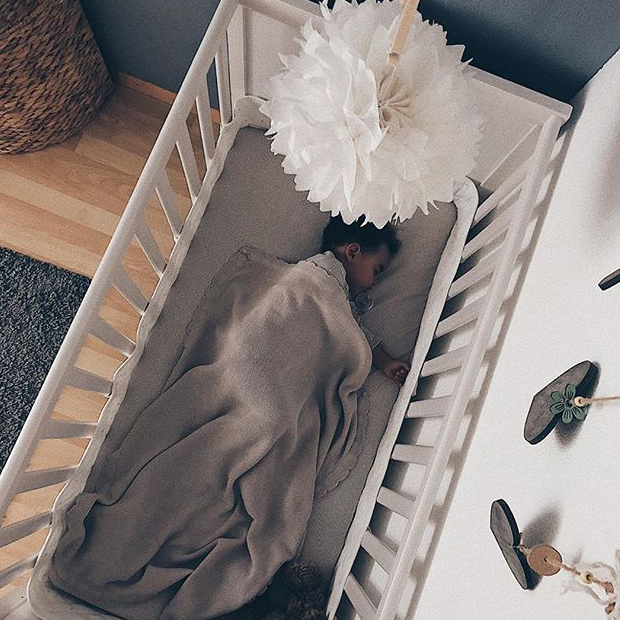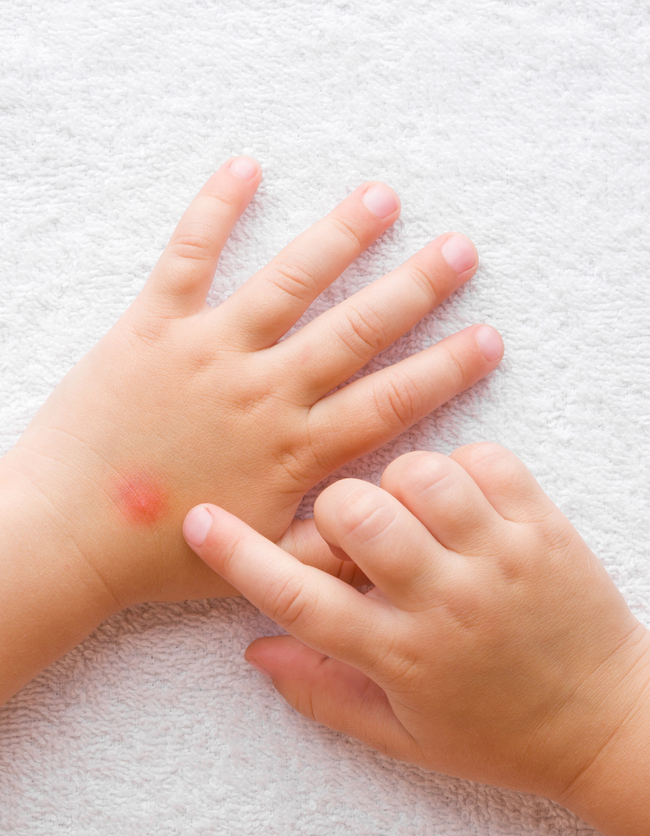 We all have that one friend who, on the night of her infant’s 12-week “birthday” and just three days shy of returning to work, threw in her headphones, locked herself in the bathroom and let that babe rip all night. Et Voila! From that day forward, she had herself a “perfect sleeper.” For the rest of us, sleep training is easier said than done and – somewhere between crying it out and attachment parenting – we want the quickest solution to being kept up all night without totally torturing ourselves. The reality is, no matter who you think you are at the outset about anything parenting related, you will only figure it out in real time. In other words, don’t go in with any expectations. Self-flagellation around falling short of some arbitrarily assigned parenting dogma will get you nowhere at any point, but especially when it comes to getting the kid to sleep.
We all have that one friend who, on the night of her infant’s 12-week “birthday” and just three days shy of returning to work, threw in her headphones, locked herself in the bathroom and let that babe rip all night. Et Voila! From that day forward, she had herself a “perfect sleeper.” For the rest of us, sleep training is easier said than done and – somewhere between crying it out and attachment parenting – we want the quickest solution to being kept up all night without totally torturing ourselves. The reality is, no matter who you think you are at the outset about anything parenting related, you will only figure it out in real time. In other words, don’t go in with any expectations. Self-flagellation around falling short of some arbitrarily assigned parenting dogma will get you nowhere at any point, but especially when it comes to getting the kid to sleep.
Be okay if you are a softie or a tough-y when it comes to your crying-tolerance threshold. Most of us are somewhere in the middle, which is to say wildly inconsistent, and it all comes out in the wash. Fortunately, pediatric expert Dr. Aliza Pressman, co-founder of seedlingsgroup and host of the Raising Good Humans podcast offers us simple guidelines to getting them to sleep, while helping us preserve our own sanity. No matter where you fall on spectrum, the mantra is the same: Letting babies learn how to fall asleep on their own is one of the best things you can help them do.
“Sleep is one of the most important components to a healthy, developing human being,” Aliza says. “We also know that adults need sleep to remain healthy, both mentally and physically. How you get your child to sleep and where they sleep is where the controversy lies. I don’t fall into a specific camp beyond safety. The AAP has very clear guidelines on safe sleep, and if you take those guidelines as a given, then you can think about how you want to teach your child healthy sleep habits.”
According to Aliza, the first four months of your baby’s life are not about sleep training, but developing routines and responding to their needs in whatever safe way you can. After that, parent behavior can influence child sleep. “If I’m working with parents on sleep training, first I need to know what they think they can tolerate in terms of boundaries,” she says. “They’ll usually say, ‘Well I can’t handle even a slight cry,’ or they’ll say, ‘I’m comfortable if I know my child is going to be OK to cry to get to sleep on their own.’ That’s when I can make a decision on the best kind of support.”

Photo by Amanda Watters
Sleep Training for the Sensitive Souls:
According to Aliza, “If a parent can’t handle even a whimper, I would then focus on that family stopping any feeding at night. Most babies don’t need to eat at night by 4-9 months (but I’d recommend parents speak to their pediatrician first). If you’re breastfeeding, maybe give one feeding, but at other wake ups, don’t give food – just cuddle and soothe. Don’t make eye contact, just soothe. Some babies just need to know you’re there, so hold their hand or pick them up and rock them to get them back to sleep. Give them a pacifier or let them suck their thumb or give them something that smells like you. And you just cuddle and soothe until they’re asleep again and you put them back down. Now, they won’t learn how to fall asleep on their own, but because you’re not giving food, it becomes less appealing to wake up. So over time – it can take weeks or months – you can get your baby to learn to stay asleep.”

Photo by Amanda Watters
Sleep Training for the “Middle of the Road” Types:
“If you can handle a whimper, then you should teach your baby how to fall asleep awake but drowsy. So you cuddle and soothe and do everything you can to make the sleep routine predictable, calm, pleasant and snuggly. But before their eyes are totally closed, you put the baby down on their back and they’ll probably whimper and they might even cry. You can let them cry and give it a little bit of time and see if they can get themselves to sleep in a few minutes. But, if they seem like they’re working themselves up into cry that makes you upset, or that’s going to make them more likely to get too deregulated so they can’t calm-down again, pick them up, get them back to a calm state and put them back awake but drowsy, and do it again. Once you achieve this, they don’t usually have to do cry it out in the middle of the night. It takes less time than not doing anything, but it’s still time consuming.”

Photo by @with.love.andrea
Sleep Training for the Full Throttle Parent:
“Then there’s the full throttle parents who say, ‘Listen, I need my kid to be a good sleeper and I can handle this.’ So you have a beautiful evening with the same routine (because bedtime routines are helpful and predictable), you have a delicious good night with the baby. Make sure the baby doesn’t need anything and is feeling really relaxed and calm. Then, when they’re sort of drowsy but still a bit awake, put them down into their crib. If you can put them down without fussing, great. If they’re crying, that’s OK too. Wait until they fall asleep. You know they’re well fed and changed. It usually takes a few times. If that baby wakes up in the middle of the night, first go to them and remind them that you’re soothing and snuggly and put them back down awake but drowsy. Remind them you’re there and check to make sure they’re not wet. And you let them put themselves back to sleep again. The only caveat is if they can’t stop crying. Then maybe they’re not ready. You were ready, but this baby is not ready. Try again a few weeks later.”
If Babe Wakes Up in the Night:
“Once you’ve gone through helping your baby fall asleep awake but drowsy over a few nights in a row, it’s rare that I have an experience where they’re getting up at night. If they do, you decide what you’re comfortable with. You can torture yourself a bit and let them cry until they fall back asleep, or go in after 10 minutes and do a slow version of the same thing. Give them the soothing pat. Or remind them you’re there. Wait ‘til that delicious moment in the morning and you’ll see they’re happy and they still love you and they feel loved. If you have a beautiful connection, and you want your baby to have healthy sleep habits, it’s not remotely in the same category as neglect. For a few hours over the course of a few days, if they’re learning how to cry themselves to sleep, and that’s an important life skill you’re teaching them.”




